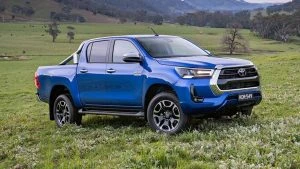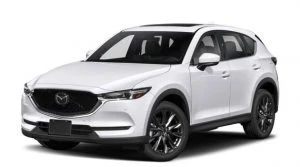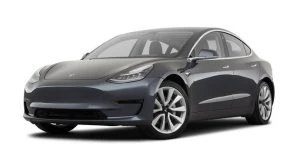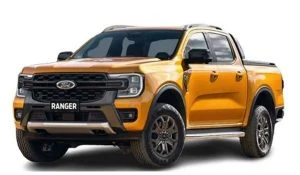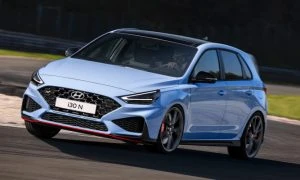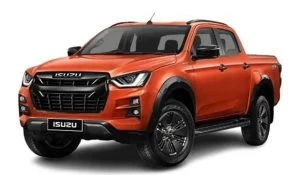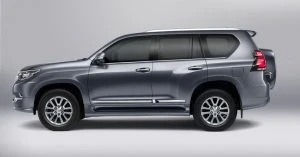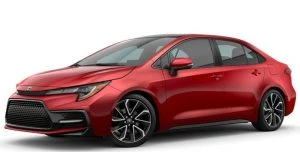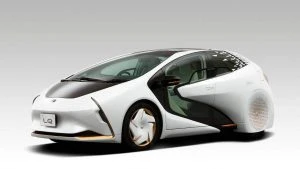Like a slow motion replay, the scene has been unfolding for some time. In fact, go back a couple of years and the writing was on the wall. Australians are obsessed with SUVs. But it’s not just here either, with many other countries following the trend, none more evident than the United States and China.
It has reached the point now where local SUV sales are far and away outperforming sedans, and have blown past 50% of all new car sales. On the one hand, the rise of commercial vehicles like utes has also helped to skew the numbers away from sedans, but the prominence of the SUV category is no statistical anomaly.
With such an evident trend appearing to be set in stone, it does raise questions over the future viability of the sedan format. In particular, will sedans still have a place in the market as SUV sales soar?

An evolving landscape
Cars have always been redefined by the technological progress that accompanies them. That doesn’t just extend to what’s under the bonnet either, nor what’s inside the cabin. It also extends to the shape of the body. We’ve seen an evolution as far as new formats like crossovers, liftbacks and many other identities.
In many respects, there is no reason to believe this won’t continue as means to continue fuelling the sedan market. Design changes may be subtle, but incorporating the feedback we’ve come to expect from those who prefer things like superior room, ride height, visibility and off-road versatility that comes with an SUV. Not to mention, with electrification and autonomy on the way, designs will inherently continue to transform, gradually shifting our taste in vehicles too.

The value proposition will dictate future sales
For now, sedans are still posting sales numbers that are nothing to sneeze at. Sure, they may be declining, but the choice for SUV models has risen astronomically to provide more options than ever before. Motorists’ preferences may have changed but in some ways, historical data may have been otherwise pointed to higher levels of SUV sales – and lower sedan sales – had drivers been afforded more choice at an earlier stage.
It is also a challenge that manufacturers should embrace. They will not only be faced with the task of streamlining their sedan range – as many have done already – but also going about reinvigorating a value proposition into the category to drive sales.
SUV sales may offer auto-makers fatter margins, however their higher prices and at-times polarising looks will still be a barrier to pushing sedans out of the market. So if sedans are then here to stay, car manufacturers must add value in the form of new technology, amenity, efficiency and performance to compete for the shrinking pool of buyers. And it’s many of these criteria that sedans have historically held the upper hand.

There are still a reasonable number of new cars being sold in Australia, when you can get them! For the second year running, new car sales figures have been heavily impacted by the COVID-19 pandemic. While the 2020 lockdowns stopped production and prevented sales, in 2021 it was really the global supply chain problems that caused the biggest headaches for ensuring manufacturers had all the bits to make up an entire car to sell. Most notably, it was the availability of semiconductors that caused the greatest complications, even to the point where all car manufacturers – it didn’t matter what brand – had to halt their production lines at various times.
Consumers have seen this effect playing out with the low stock of new cars at dealerships across the country, as well as much higher prices for used vehicles. Getting a handle on the new cars that people have actually bought has been tricky at times, but we can now give you an update on the 10 best-selling cars in Australia for the March 2022 sales results.
While the Toyota Hilux still keeps its position as Australia’s best-selling new car (and favourite ute overall), overall new car sales for March 2022 have stayed relatively stable across the board and across Australia. Data from the Federal Chamber of Automotive Industries (FCAI) has unveiled an overall monthly sale of 101,233 units for new vehicle sales across Australia for March. That’s still a fair few!
Several favourite vehicles remain at the top of the list, including 4 Toyota models (Hilux, RAV4, Prado and Corolla) making the top 10. An interesting bump in sales was seen with the number of Tesla Model 3 cars being sold. There were enough Tesla Model 3 sales to see it being Australia’s best-selling electric vehicle (EV) brand as well as making the top 10.
Australia’s top 10 best-selling cars for March 2022 were:

Number 1, Toyota Hilux

Number 2, Toyota RAV4

Number 3, Mitsubishi Triton

Number 4, Mazda CX-5

Number 5, Tesla Model 3

Number 6, Ford Ranger

Number 7, Hyundai i30

Number 8, Isuzu D Max

Number 9, Toyota Prado

Number 10, Toyota Corolla
Consumer inquiries and demand for new cars remains strong in Australia, though manufacturers are working hard to match this demand with the actual supply of products, particularly as they continue to recover from all the COVID-19 upheaval and shutdowns and the ongoing global semiconductor shortage.
FCAI Chief Executive Tony Weber suggests that Australians are purchasing vehicles with zero- and low-emissions in greater numbers. This purchasing also includes more hybrid vehicles being sold.
Stumping up a deposit for a new vehicle can be a difficult prospect for many new car buyers, yet alone if they are trying to scrape together enough funds for it to be a large deposit.
So does it really matter then if you are unable to put down a large deposit for a new car? Should you hold off on your decision to purchase a car until you are in a position where you have enough funds for a large deposit?
Why put forward a large deposit?
As with any other instance where you might be forking out for a big purchase, the more money you can set aside, the smaller the amount of funds you borrow from a financier.
If you are in a position where you can put forward a large deposit then you will reduce the size of your loan. This can afford you several potential benefits, providing of course that you can keep up with the commitments of the loan. These benefits include:
- A potentially lower interest rate on the loan
- A reduction in overall interest costs across the life of the loan
- Lower monthly repayment obligations across the life of the loan
- The ability to repay the loan in a shorter timeframe

What should I consider before putting forward a large deposit?
Although the incentives in putting forward a large deposit might seem compelling, if you are going to do so, then you need to be particularly attentive to certain circumstances.
First things first, you need to understand just how much you can afford to set aside and commit towards a deposit. Remember, you will have other financial obligations in your life, and your personal circumstances could change at any minute. It is always wise to be prepared for any risk, including the prospect that you lose your job or have sudden emergency expenses arise.
One of the things you will need to take into consideration is whether putting forward a large deposit now could leave you with less cash to meet your repayments. If for any reason you find that you are unable to keep up with your repayment schedule, this could have long-term ramifications for your credit history.
What’s more, pursuing low interest rates shouldn’t necessarily be your end goal. Just because you can’t save up enough funds to attain the lowest rate available, that doesn’t mean you should hold off on purchasing a vehicle, as not only could you miss out on a time-sensitive deal, it could even have other implications on your day-to-day livelihood.
April 5th, 2022 |
automotive design,
blog,
Electric Vehicles (EVs),
Environment,
Fueling your Car,
Japanese cars,
Manufacturer News,
Safety,
Sustainability/Green,
Technical

The flourish of new electric vehicles (EVs) and hybrids on the auto markets hint towards the diminishing of fossil fuel use. EV sales have a long, long way to go before outselling vehicles with internal combustion engines (ICEs), but the goals have been set by international emission standard agreements. Certainly, doing away with EV range anxiety, the liquid lithium-ion batteries proneness to catching fire, having EVs with brief recharging times that are in line with current ICE refuelling times, and have pricing parity between a new EV and an equivalent new ICE vehicle would make a world of difference in the minds of people on the lookout for a new car. Once these EV problems have been solved, perhaps consumers will genuinely buy into an all-EV future.
The good news for EV enthusiasts is that essentially every big automotive manufacturer in the world has unveiled its fleet’s electrification plans and zero-emission target dates. Some manufacturers have even gone further, declaring that gasoline and diesel engines would no longer be available in their model line-ups by 2050. And, in order for these claims to become reality, some big landmark advancements in the EV future are being made right now, with huge money currently being pumped into various manufacturer’s kitties to research and create the perfect solid-state battery – especially designed for use in EVs.
One automotive manufacturer with a big sway in what goes down in the automotive world is Toyota, and they have pumped billions into creating a solid-state battery for use in their future hybrid vehicles and EVs. A version of Toyota’s LQ Concept, which first debuted at the 2019 Tokyo Motor Show, is now using working solid-state batteries, and has been doing so since June 2020. Toyota has been collecting all the performance data from the solid state batteries in the LQ for research, development, and better solid-state battery designs. The LQ Concept car is unlikely to end up as a production vehicle, however the solid-state batteries inside the car, and their development, will be used as a blueprint in Toyota’s new hybrid vehicles and EVs soon to make an appearance on the market for buyers to purchase.

Toyota LQ Concept Solid-State
Toyota’s quick development of solid-state batteries for use in all their hybrid and electric vehicles by 2030 is a sign of the ramping up in EV production that is happening not only at Toyota but in all other big global automotive brands who are boosting investments in the anticipation of greater EV and hybrid vehicle consumerism.
What battery type does Tesla use? Currently, Tesla has been using heavy liquid lithium-ion battery technology. However solid-state batteries are really the next step in clever battery technology, especially for EVs. Why? Solid-state batteries offer much better energy density, which leads to smaller, lighter batteries for cars but with a vastly improved range before recharging is necessary. Solid-state batteries will also be able to recharge from empty (flat) to 80 % in just 15 min – not anywhere between 2 to 10 hours that is currently the norm, if you can find a spare fast charger to park up at.
The good news for solid-state batteries doesn’t stop here either, because solid-state batteries are inherently safer due to the lack of flammable liquid electrolytes that you’ll find in liquid lithium-ion batteries. You may have heard of various electronic devices bursting into flame? Well, liquid lithium-ion batteries bursting into flame and causing fires in various EVs over the last couple of decades has been an issue. This in itself has deterred many people away from buying into EVs altogether.
So, big dollars are being spent in the design of solid electrolyte batteries (solid-state batteries) that are stable, chemically inert, and still a good conductor of ions between the electrodes. In essence solid-state batteries will be doing away with the slopping, flammable liquid lithium-ion electrolyte battery designs.
By default, solid-state batteries are more stable, but they are also more compact in design, and therefore lighter. Solid state batteries thus pack more energy output into the same amount of storage space that heavier and lower-output liquid lithium-ion batteries require. Because solid-state batteries are lighter, they have more energy density, offer more range, and deliver a better power to weight ratio, and they also recharge faster.
Solid-state batteries have been used in small electronic devices like pacemakers (an amazing bit of life-changing tech) as well as radio frequency identification (RFID), and wearable devices for years. Having fewer bits and pieces involved in the solid-state battery design means fewer things are present to go wrong. In addition to their improved safety, size, and stability, solid-state batteries in EVs would also offer faster charging times, more travel range, and even greater energy density.
Solid electrolytes in solid-state batteries can even be composed from a number of everyday materials – even ceramics and glass. The challenge to making solid-state batteries viable, however, is developing the technology that is commonly used in small devices and applying it to large-scale applications like in an EV. Currently, solid state batteries are expensive to fabricate because they have been prone to cracking, which has been a result of the brittleness of the electrolytes inside the battery expanding and contracting during continual use. The new research and development is setting out to change this.
Toyota is cracking the problem and will be using their solid-state batteries in their new range of hybrid vehicles first, which is an ideal testing ground for their fully-kitted EVs soon. Volkswagen is also promising that they will have solid-state batteries in use and in their cars by 2024. Like Toyota and Volkswagen, BMW anticipates that solid-state batteries could make it into production cars by 2025. Tech giants Samsung and Panasonic are working away at creating a range of solid state batteries that automakers will be able to use. Toyota has partnered with Panasonic to pave the way to an EV future.




